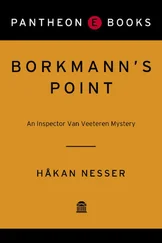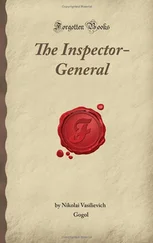Hakan Nesser - The Inspector and Silence
Здесь есть возможность читать онлайн «Hakan Nesser - The Inspector and Silence» весь текст электронной книги совершенно бесплатно (целиком полную версию без сокращений). В некоторых случаях можно слушать аудио, скачать через торрент в формате fb2 и присутствует краткое содержание. Жанр: Полицейский детектив, на английском языке. Описание произведения, (предисловие) а так же отзывы посетителей доступны на портале библиотеки ЛибКат.
- Название:The Inspector and Silence
- Автор:
- Жанр:
- Год:неизвестен
- ISBN:нет данных
- Рейтинг книги:4 / 5. Голосов: 1
-
Избранное:Добавить в избранное
- Отзывы:
-
Ваша оценка:
- 80
- 1
- 2
- 3
- 4
- 5
The Inspector and Silence: краткое содержание, описание и аннотация
Предлагаем к чтению аннотацию, описание, краткое содержание или предисловие (зависит от того, что написал сам автор книги «The Inspector and Silence»). Если вы не нашли необходимую информацию о книге — напишите в комментариях, мы постараемся отыскать её.
The Inspector and Silence — читать онлайн бесплатно полную книгу (весь текст) целиком
Ниже представлен текст книги, разбитый по страницам. Система сохранения места последней прочитанной страницы, позволяет с удобством читать онлайн бесплатно книгу «The Inspector and Silence», без необходимости каждый раз заново искать на чём Вы остановились. Поставьте закладку, и сможете в любой момент перейти на страницу, на которой закончили чтение.
Интервал:
Закладка:
Suijderbeck looked up.
‘Do you really want to know?’
‘Why do you ask that?’
Suijderbeck took a swig of beer.
‘Because people usually take it so badly.’
‘Really?’ said the chief inspector, and thought for a few seconds. ‘Yes, I want to know.’
‘If you insist,’ said Suijderbeck. ‘But we’ll leave it until we’ve finished eating.’
‘Well, I was a member of the drugs squad for a few years,’ Suijderbeck explained.
‘In Rembork?’
‘No, Aarlach. Anyway, I was hot on the scent of some really big names. One night I was in a parked car, keeping an eye on them, when it turned out that they were hot on the scent of me as well.’
‘Oh dear,’ said Van Veeteren.
‘Bloody silly, sitting in a car on your own, don’t you think?’
Van Veeteren said nothing. Accepted a cigarette and allowed Suijderbeck to light it.
‘They took me to a place on the edge of town. They were going to teach me a lesson, they said. To keep my nose out of their business in future. That’s all they did say, in fact. Reticent types. Anyway, they tied me up and then started the circular saw.’
He paused briefly.
‘It all went so damned quickly. No more than half a second, but that was the longest half-second of my life. And it keeps coming back.’
He fell silent. Van Veeteren stared at the hand holding his cigarette. Felt something in his mind turn round and give up. He drew on his cigarette, then stubbed it out.
‘Shall we pay?’ he said.
‘I suppose so,’ said Suijderbeck.
Suijderbeck wanted to take a little walk before going to bed, and after they’d gone a couple of hundred metres the chief inspector asked:
‘How long ago was that?’
‘Five years.’
‘Why did you stay in the police?’
Suijderbeck couldn’t help laughing.
‘A fifty-year-old with a wooden leg,’ he said. ‘Have you ever heard of something called the job market?’
20
At about one o’clock on Thursday, when acting Chief of Police Kluuge got into his hot car out at Waldingen – in order to drive back to Sorbinowo and be contactable at the police station during the afternoon (and possibly snatch a half-hour lunch with Deborah) – at least he was able to reassure himself that things had started moving.
Just a little bit. Following the example set by Marieke Bergson, a handful of girls had started to crack and speak about the last few days at the camp. Together with his colleagues from Haaldam – Lauremaa and Tolltse – Kluuge had spent a few hours that morning listening to their tear-soaked confessions. However, nothing specific nor of vital significance for the investigation had materialized. Not as far as they could tell, anyway. The girls had been ordered – more or less explicitly – to say nothing, and so they had said nothing.
It seemed to be as simple as that.
There was still a group of girls sticking to the party line and saying nothing, and there were grounds for suspecting that it was this group that had put the others – the ones whose faith was beginning to wobble – under pressure. Moreover, a trio of girls had emerged, probably led by Belle Moulder (that was Lauremaa’s contention at any rate), who had been the last to see Clarissa Heerenmacht alive.
Excluding the murderer, that is. Round about five or half past five on the Sunday evening these girls, including Clarissa, had been down by ‘the rock’ – a smooth, warm and sunny flat piece of rock a few hundred metres to the west of the summer camp – swimming in the lake. It was still unclear how the four of them had become separated, but the bottom line was that they hadn’t returned to the camp together.
Clarissa Heerenmacht hadn’t returned at all.
Instead, Clarissa Heerenmacht had met her murderer. Unclear how. Unclear when and where.
The families were another problem. Kluuge switched on the air conditioning and turned into the main road. Yesterday’s evening papers – not to mention the television and radio – had devoted a lot of space to the case (Kluuge sincerely hoped that Malijsen really was as isolated as he had said he would be: if the real chief of police were to appear on the stage without warning, his arrival would hardly have a positive effect on the work they were doing – everybody involved agreed about that, even if nobody was prepared to say so), and most of the parents had been in touch. Shortly before Kluuge left Waldingen that roasting-hot afternoon, four of the girls had been collected by worried mums and dads – obviously after spending quite a while with Lauremaa and the psychologists. Two of the girls turned out to be sisters, a detail that hadn’t been clear before.
Anyway, there were six left. Three who still hadn’t said a word, two who seemed to be about to do so, and one who had made a clean breast of it and was waiting to be picked up.
Plus Marieke Bergson, of course. She was still at the police station, under the wing of Miss Miller and a Roman Catholic Sister of Mercy (the latter had turned up out of the blue the previous evening and offered her services – for professional and ethical reasons, not to mention pressure from her trade union, the psychologist had fled the scene long ago). Her name was Vera Saarpe, and she had let the girl stay at her place overnight.
It was only this morning, early on, that they had managed to contact Marieke’s parents, and apparently they would be arriving during the course of the afternoon to take care of their daughter. Kluuge had spoken on the telephone to the mother, and established that the apple hadn’t fallen very far away from the tree in this case either.
He sighed deeply. It was far from easy to keep tabs on everything, he thought.
Far from easy.
Then he sighed even more deeply – when he began to think about Katarina Schwartz, the girl who seemed to have gone missing from the camp some ten to twelve days ago. Marieke Bergson’s claim regarding her sudden disappearance had been backed up by all the others who had spoken up so far, and it seemed reasonable to assume that it was this Katarina who had been referred to in the first two telephone calls from the anonymous woman.
To crown it all, they hadn’t succeeded in making contact with her parents. They were evidently on holiday, touring France by car. But if in fact Katarina had simply run away from the camp, it was quite possible that she was sitting in the same car as her mother and father. Or in a rented cottage, or in a deckchair. In Brest or Marseilles or wherever the hell they happened to be. Why not Lourdes, come to that?
Servinus had been in touch with the French police, who had promised to send out SOS messages to track down the couple and their car; but Servinus had dealt with his French colleagues before, and wasn’t especially optimistic.
In any case, there were indications to suggest that the girl might have had good reason to run away; but just how strong they were was something Kluuge hadn’t yet established. Nor had anybody else, come to that. The probability was that this scenario was no more than wishful thinking – neighbours, friends and relations of the Schwartz family had seemed to be quite certain that Katarina had not been in the car that set off on the journey south-west the previous week.
But the timing did fit in, as Kluuge had noted when he thought the matter over. If the daughter had suddenly turned up unexpectedly the evening before they set off – well, it wasn’t out of the question that she might have travelled with them the next morning without anybody else knowing.
In which case they had only one murder to solve.
Which was bad enough, of course.
It also occurred to him – as he sat in the car sweating and driving far too fast on the zigzagging road – that all these interrogations, all these telephone calls and all the various measures they were taking seemed to be irrelevant. They were simply taking up an enormous amount of time and energy and resources, without actually leading anywhere.
Читать дальшеИнтервал:
Закладка:
Похожие книги на «The Inspector and Silence»
Представляем Вашему вниманию похожие книги на «The Inspector and Silence» списком для выбора. Мы отобрали схожую по названию и смыслу литературу в надежде предоставить читателям больше вариантов отыскать новые, интересные, ещё непрочитанные произведения.
Обсуждение, отзывы о книге «The Inspector and Silence» и просто собственные мнения читателей. Оставьте ваши комментарии, напишите, что Вы думаете о произведении, его смысле или главных героях. Укажите что конкретно понравилось, а что нет, и почему Вы так считаете.












